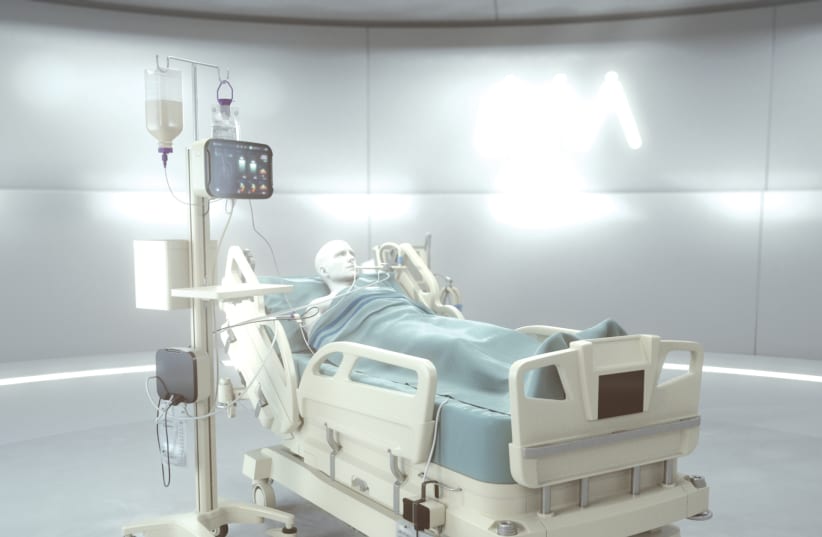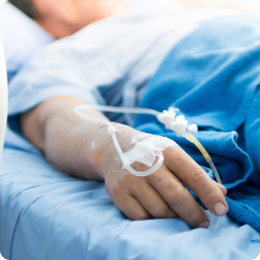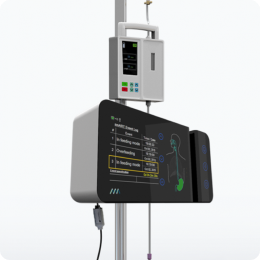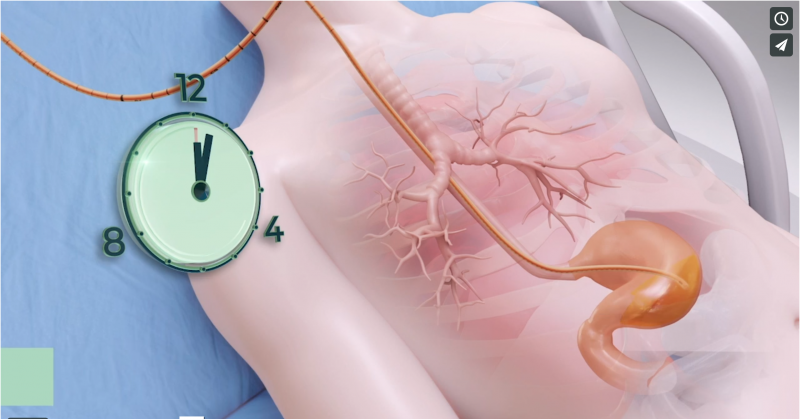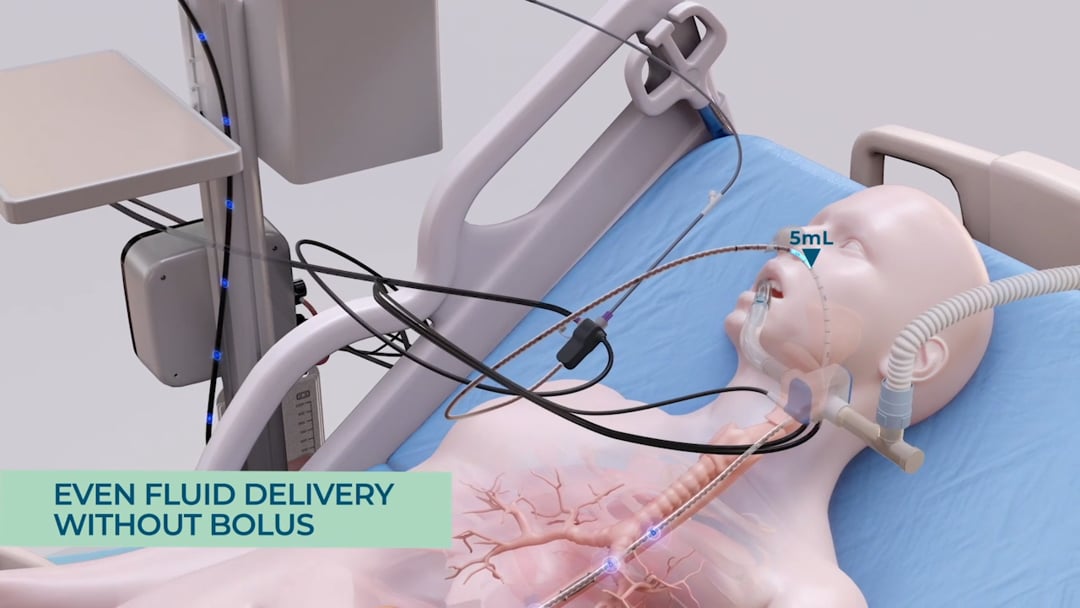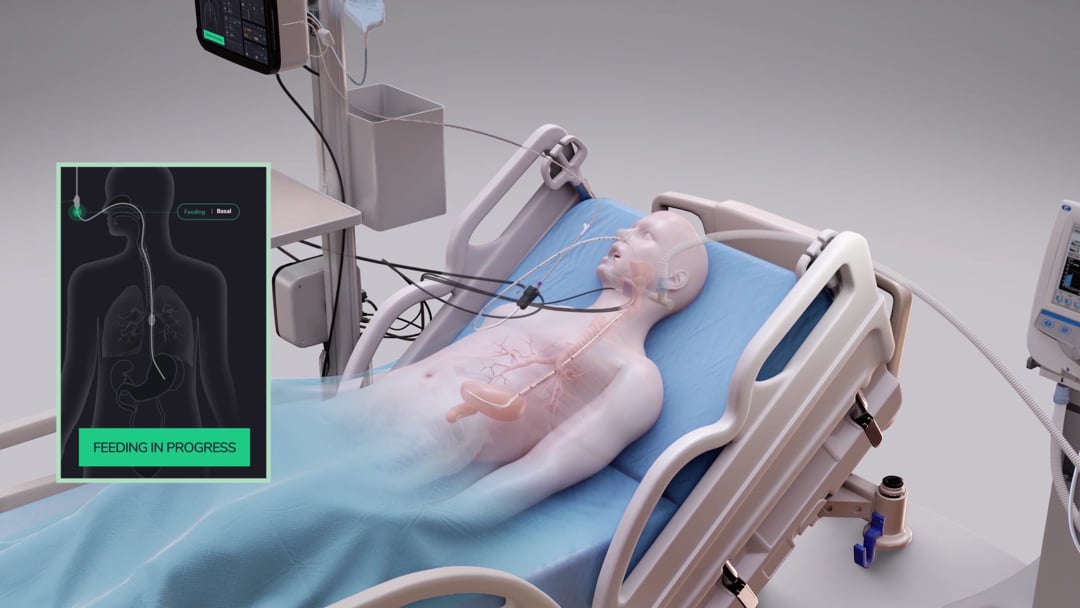Months later, the FDA reported that every drug class used for mechanical ventilation (sedatives, analgesics, paralytics and vasopressors) were still in short supply. It then became clear to me that it’s not just the ventilators themselves that are important, but also every element associated with the care of mechanically ventilated patients in the intensive care unit (ICU).
If you are in an ICU connected to a ventilator, things can get quite complicated. From ventilator-associated pneumonia (VAP) and catheter-associated urinary tract infections to widespread inflammation that can lead to multiple organ failure, critically ill patients are subject to many life-threatening complications that later often require extensive therapy.
The lucky ones who make it out of ICU face a long and difficult recovery. Nearly half the survivors will not return to work in the first year following discharge, often as a result of post-intensive care syndrome and weakness post-ICU.
According to a study published in the Lancet, when connected to a ventilator, half of non-survivor COVID patients experienced a secondary infection. VAP occurred in 31% of patients. Some 10% of VAP patients never recover no matter what their initial diagnosis was.
VAP develops because – along with the ventilator – a patient must be fed through a feeding tube through which gastric content from the stomach can regurgitate into the lungs due to reflux, which can then lead to aspiration, breathing the food into the lungs. Patients who are overfed risk aspiration pneumonia as a result of these reflux events. On the flip side, feeding the patient too little also comes with its own risks, such as malnutrition, which affects up to 50% of ICU patients.
Art Medical has developed its smART+ Platform, an all-in-one solution that utilizes sensor-based feeding tubes and other smart disposables made by Art, to detect and prevent VAP and malnutrition by managing both events in real-time, ensuring optimal patient nutrition in order to accelerate patient recovery.
The smART+ tubes are loaded with sensors that automatically collect patient data including reflux rates, caloric and energy needs and food requirements to adjust and deliver the nutritional doses through the tube. The company’s algorithms automate the placement of a feeding tube in the stomach – a process that currently must be done with X-ray imaging verification – as well as provide real-time monitoring to assure the feeding tube stays in place during ongoing use.
You may ask yourself why positioning a feeding tube correctly is so important. That’s because an improperly placed feeding tube can cause a lung puncture. It can also end up in the lungs instead of stomach causing aspiration pneumonia. In addition, the system analyzes urine output and alerts the medical staff before kidney function deteriorates to a critical level.
Over the past few years, Art Medical has been collaborating with hospitals in Israel and the US. One of the most recent collaborations resulted in a case study that was published in The Journal of Critical Care.
A CRITICAL CARE team, led by Prof. Pierre Singer, the director of the general Intensive Care Department and of the Institute for Nutrition Research at the Rabin Medical Center at Beilinson Hospital, and a former chairman of the European Society for Clinical Nutrition and Metabolism, used the smART+ Platform to observe that high flow nasal cannulas (HFNC), a popular non-invasive oxygenation method that is used to treat COVID-19 patients, exposes patients to significantly more reflux events as compared to invasive ventilation.
Their finding suggests that HFNC may put patients at an increased risk of aspiration, leading to ICU-acquired pneumonia. The company continues to expand its technology and work on clinical validations.
Art Medical has raised $46 million in capital from leading investors. The rounds were led by Advanced Medical Technologies with participation from other investors. The company is also a recipient of the recent Israel Innovation Authority–Thomas Jefferson University Hospitals grant and Bill & Melinda Gates Foundation Grand Challenges grant. The company has offices in Netanya and in Palo Alto, California.
Art Medical declares its mission is to bring critical care into the 21st century and save lives by preventing ICU-acquired complications, such as aspiration pneumonia, ventilator-associated events, malnutrition and acute kidney injury.
An estimated one million US patients are affected by ventilator-associated events annually. Pneumonia is the most common infection in intensive care. Of critically ill patients, 50% have malnutrition upon admission or develop it during hospitalization. This complication adversely affects outcomes including length of stay, morbidity and mortality. In mechanically ventilated patients, both overfeeding and underfeeding have been found to increase time on the ventilator.
Hospital nutrition, particularly in the ICU, where accurate care is often a matter of life and death, has not been at the forefront of clinical practice. However, research has shown evidence of the underlying challenges concerning nutrition-related in-hospital complications. Art Medical decided to take intensive care nutrition therapy to the next level by making it more precise, personalized and safe.
The technology developed by the company is changing the traditional approach, proposing a new and comprehensive system that provides central nutrition with a safe and efficient answer to unmet needs.
Hemodynamic and respiratory systems, metabolism and nutrition can now be closely monitored, offering a tremendous upgrade to medical nutritional therapy for the critically ill. According to Prof. Singer, “The smART+ Platform is a game changer in the world of intensive care nutrition.”
Liron Elia founded Art Medical with one goal: to save lives by preventing pneumonia in ICU patients. Since then, the company’s mission has expanded to prevent other life-threatening ICU-related complications and deliver patient-centered holistic critical care.
Art Medical is aiming to be a ventilator’s best friend and to monitor the patient to ensure optimal medical care and maximum positive results.
The advancements made by Art Medical to provide better care for critically ill patients in need of ventilators is profound. With respect to this post-pandemic era, I can only hope that more healthcare facilities worldwide will be quick in adopting its technology sooner, in an effort to save more lives.
Source – http://tinyurl.com/yc6km7fs


 USA Site
USA Site 